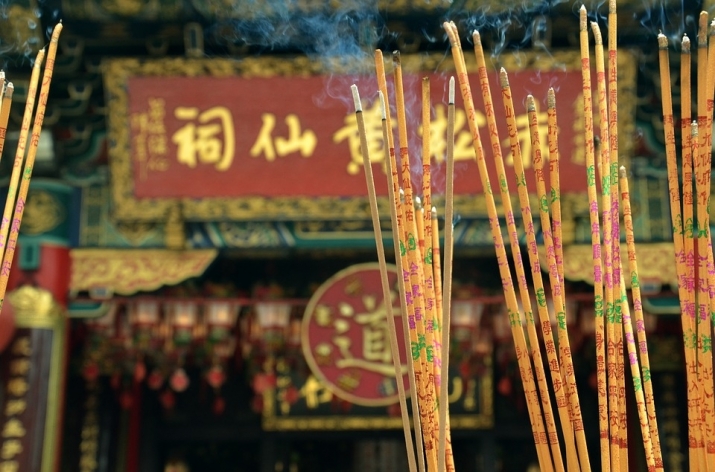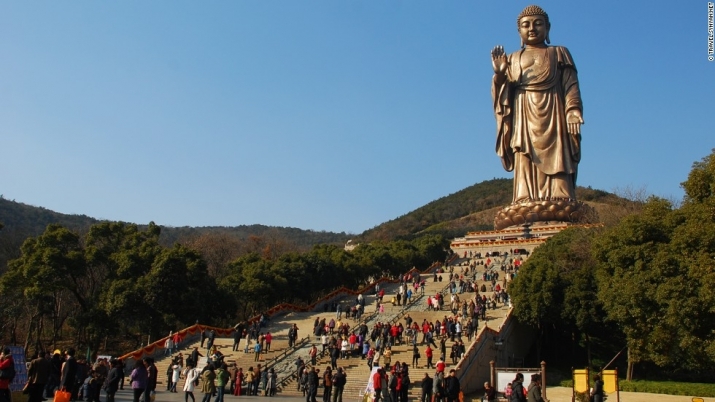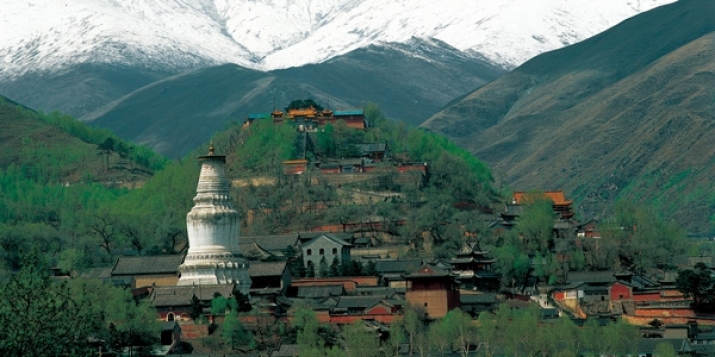NEWS
China Explores Ways to Stem Commercial Exploitation of Buddhism
 Visitors to Buddhist temples in China can expect to pay up to several hundred yuan for incense sticks and other offerings. From pixabay.com
Visitors to Buddhist temples in China can expect to pay up to several hundred yuan for incense sticks and other offerings. From pixabay.comChina is seeking ways to halt the increased commercialization and financial exploitation of Buddhist places of worship throughout the country, a senior official noted during a meeting of the Buddhist Association of China last week in Changsha, Hunan Province. The meeting was attended by delegates from 14 municipalities and provinces.
Buddhism is big business in China. Since the 1980s, when the Communist Party of China began to ease restrictions on religion and on the construction and renovation temples, there has been renewed interest in religion in general and in Buddhism in particular. With the more recent boom in domestic tourism, many temples, regional officials, and businesspeople have recognized the accompanying opportunities to make a profit. In recent years, many new Buddhist sites targeting domestic tourists have sprung up throughout the country, and plans are afoot for dozens more. Examples include the 128-meter-high Spring Temple Buddha statue in Henan Province, the statue of Guan Yin of the South Sea of Sanya in the island province of Hainan, and plans in Gansu Province to connect the historic Mogao Caves in Dunhuang with the sand dunes of another nearby tourist attraction.
Many temples and religious sites are also choosing to commercialize some of their services to fund maintenance of the buildings and sites, since government support for religion has diminished and income from donations is often insufficient. Visitors to temples and holy sites can expect to pay entrance fees and sometimes hundreds of yuan for incense sticks and other offerings.
 The Spring Temple Buddha statue in China's Henan Province. From cnn.com
The Spring Temple Buddha statue in China's Henan Province. From cnn.comIn 2012, there were even plans to list some of China’s most sacred Buddhist mountains—Mount Jiuhua in Anhui Province, Mount Wutai in Shanxi Province, and Mount Putuo in Zhejiang Province—on the Shanghai stock exchange to finance expansion plans for holy sites. These plans were met with widespread criticism from Buddhists in China, who lamented that the mountains, once revered as the earthly homes of bodhisattvas, were becoming symbols of the country’s unrestrained culture of materialism and commercialization. The government subsequently banned temples and holy sites from pursuing stock market listings.
All these issues were addressed during the meeting of the Buddhist Association of China, where Jiang Jianyong, deputy head of China’s State Administration for Religious Affairs, stressed that such violations of religious rights and interests called for a renewed agenda to promote and protect Buddhism and the religious right of Buddhists in China.
Delegates at the meeting related further examples of individuals and corporations exploiting Buddhism for commercial gain, often under the guise of building Buddhist cultural (theme) parks. In addition, temples are regularly rented out for commercial use by religious figures, and there have been instances in which people have collected donations to back non-existent UNESCO World Heritage Site applications.
 Mount Wutai. From chinadaily.com.cn
Mount Wutai. From chinadaily.com.cnHuai Hui, secretary-general of the provincial Buddhist association recounted how a monk in the city of Hengyang, in Hunan Province, had authorized the acquisition of 18 pine trees from Japan for the formidable sum of 5 million yuan (US$735,000). He added that another monk in Loudi, also in Hunan, had fraudulently collected 8 million yuan (US$1.2 million) in funding for the construction of a temple, which he used for personal gain.
“Some ancient temples have been surrounded by so-called cultural parks, with non-religious buildings constructed for commercial use,” said BAC deputy director Sheng Hui. In addition, “fake Buddhists” have been luring followers, extorting money, and performing illegal religious activities, giving Buddhism a bad name. (China Daily)
Some of the initiatives of the Chinese Buddhist Society and the State Administration for Religious Affairs include mandating information disclosure and lawmaking. Last year, a living-Buddha authentication database was introduced to register and confirm the identities of purported living Buddhas, an inheritance structure unique to Vajrayana Buddhism.
“To protect religious rights and uphold dignity, Buddhist associations across China have been asked to tighten their management of personnel and strictly prohibit any commercial activities,” said Sheng Hui. (China Daily)
See more
China in effort to tackle commercial abuse of Buddhism (China Daily)
Nation exploring ways of halting commercialization of religion (Shanghai Daily)
China explores ways to purge commercialization of Buddhism (China.org.cn)
Buddhism and Business: Zen and the art of moneymaking (The Economist)
The Price of Faith: Chinese Buddhist Sites Plan IPOs (Time)
Commercialization of temples in China prompts ban on stock listings, crackdown on profiteering (Fox News)
Related news from Buddhistdoor Global
China to Open its Own Nalanda University in Hainan Province in September














